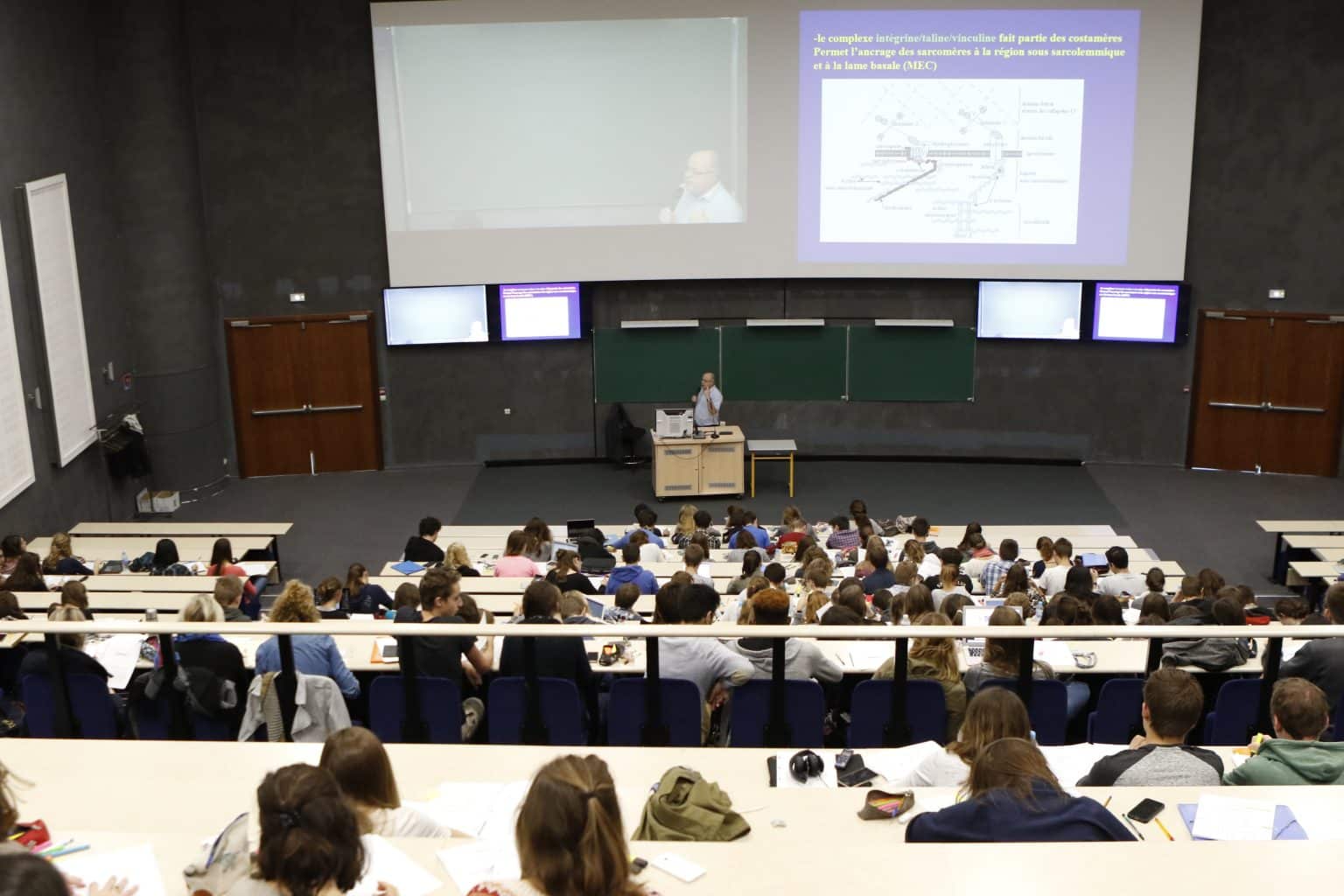
Status of teaching and research staff
The activities of teaching and research staff (lecturers, professors) and researchers (research fellows, research directors) at the Institut Catholique de Lille are governed by its collective agreement, institutional agreements and internal regulations. This context concerns in particular the legal working hours (200 days per year, on site or on assignment), the place of work and remuneration.
Pedagogy
Teaching activities take the form of initial training courses (up to 240 hours of face-to-face teaching for lecturers and researchers). These involve:
Delivering and coordinating initial and continuing training courses.
Fulfilling all related obligations, such as marking written and/or oral tests, continuous assessment and examinations, preparing teaching materials and making them available on the teaching resource centre.
Performing all other duties related to teaching: supervising dissertations, monitoring students, supervising and organising student projects, etc.
Utilising the educational innovation tools implemented within the entity.
Research
Research activity must comply with HCERES evaluation standards. Essentially, this involves:
Generating knowledge through the organisation of and participation in national and international conferences, the publication of articles in peer-reviewed scientific journals, book chapters, books, popular science articles, etc.
Participating in and responding to calls for research projects, writing grant applications, etc.
Participating in national and international research networks.
Life of the entity
Involvement in the life of the entity, its research team and the institution takes the form of:
participation in the entity’s activities and development (meetings, assemblies, etc.)
participation in the organisation of scientific events, being a source of proposals, etc.
Participation in student recruitment (prospecting, promotion and representation of the entity, etc.)
Paid working time is spent on site or on assignments.
Expertises
Expertise activities include:
services and interventions for companies, associations, local authorities, etc. continuing education courses, etc.
How to apply for a position as a lecturer-researcher or researcher
Recruitment is advertised as widely as possible: calls for applications are posted in the premises of the institution concerned, on its website and on the ICL website; they are distributed within disciplinary networks (disciplinary associations, electronic mailing lists, etc.); and finally, they are posted on the European Commission's EURAXESS website.
The application file must contain the following items:
A letter describing your reasons for joining the ICL and outlining your proposed contribution.
A detailed CV.
A list of publications.
A summary of your three most significant recent publications.
Two to three letters of recommendation.
Copies of your highest academic qualifications.
The recruitment process places all potential candidates on a truly equal footing. The period between the publication of a call for applications on the EURAXESS website and the application deadline is at least 21 days. The period between the notification of shortlisted candidates and the interviews is at least 8 days. Shortlisted candidates are informed of the duration and format of any presentation they may be required to give.
The review of applications follows these steps:
Reminder of the context of the position
Statement of potential conflicts between jury members and candidates
Reminder of the duty of confidentiality
Reminder of the recruitment procedure
Appointment of a vice-chair in the event of a conflict of interest involving the chair
Review of the admissibility of applications, based on the criterion of completeness of the required documents
Evaluation criteria (quality of the three projects requested, experience in the teaching disciplines, suitability for the research team's activities)
Review of applications in alphabetical order
Iteration of each application to decide whether it should be included in the shortlist (vote), or in a reserve list
The selection committee's composition guarantees the scientific quality of recruitment. In addition to individuals considered necessary within the entity, it includes, where possible, one or more members from outside the institution.
Contact - recrutement
The main contacts are:
Carine Ledoux, Recruitment Manager (carine.ledoux@univ-catholille.fr)
Lucas Antoine, Recruitment Officer (lucas.antoine@univ-catholille.fr)
Yolande Magrit, Director of Human Resources (yolande.magrit@univ-catholille.fr)
Nicolas Vaillant, Vice-President Vice-Rector in charge of Research (nicolas.vaillant@univ-catholille.fr)
The contacts listed in the job advertisements


